CIVIL SOCIETY WATCH 5-10 JUNE
This week: Noxious narratives, the trouble with food and water, plundered oceans and going BIG on details
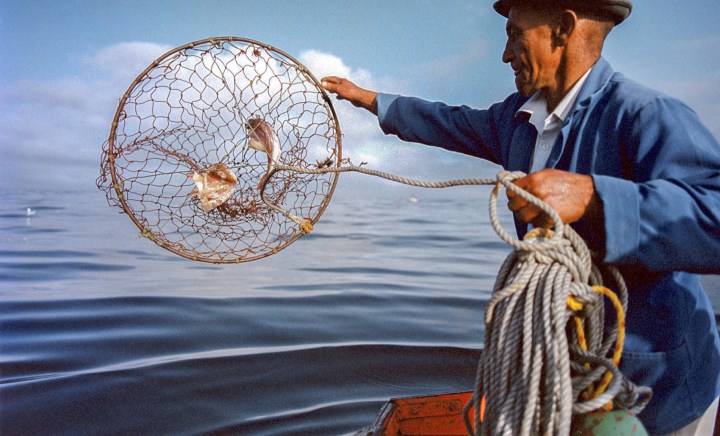
Tuesday is World Food Safety Day, an opportunity to inspire action to help detect and prevent foodborne risks. Later in the week, the Helen Suzman Foundation will host a roundtable discussion on the Basic Income Grant, while the Dullah Omar Institute, together with a Global Environmental Law Centre webinar will focus on nature’s constitutional right to exist.
Monday, 6 June is Russian Language Day, which aims to maintain equality between the six official languages of the United Nations (UN) – English, Arabic, Spanish, Chinese, French and Russian, and raises awareness of the history, culture and development of the Russian language, according to the UN.
“Multilingualism, which is an important factor in harmonious communication between peoples, is of particular importance to the UN. While promoting tolerance, it also ensures effective and more active participation of all in the organisation’s work process, as well as greater efficiency, better results and greater stakeholder involvement,” it says.
“Multilingualism must be preserved and promoted through various measures taken within the UN system for the benefit of sharing and communication.”
Tuesday, 7 June is World Food Safety Day, which draws attention to and inspires action to help detect and prevent foodborne diseases – which are usually infectious or toxic, caused by bacteria, parasites or chemicals – and this contributes to food security, human health, sustainable development and economic prosperity, according to the UN website.
“Food safety has a critical role in assuring that food stays safe at every stage of the food chain – from production to harvest, processing, storage, distribution, all the way to preparation and consumption.”
Wednesday, 8 June is World Oceans Day. The theme of the day for 2022 is “Revitalisation: Collective action for the ocean”. Covering 70% of the planet, oceans support all life on Earth.
“The ocean produces at least 50% of the planet’s oxygen, it is home to most of Earth’s biodiversity, and is the main source of protein for more than a billion people around the world,” according to the UN. “The ocean is key to our economy, with an estimated 40 million people employed by ocean-based industries by 2030.”
However, humans are taking more from the ocean than can be replenished. About 90% of big fish populations have been depleted and 50% of coral reefs destroyed.
“We need to work together to create a new balance with the ocean that no longer depletes its bounty but instead restores its vibrancy and brings it new life,” the UN adds.
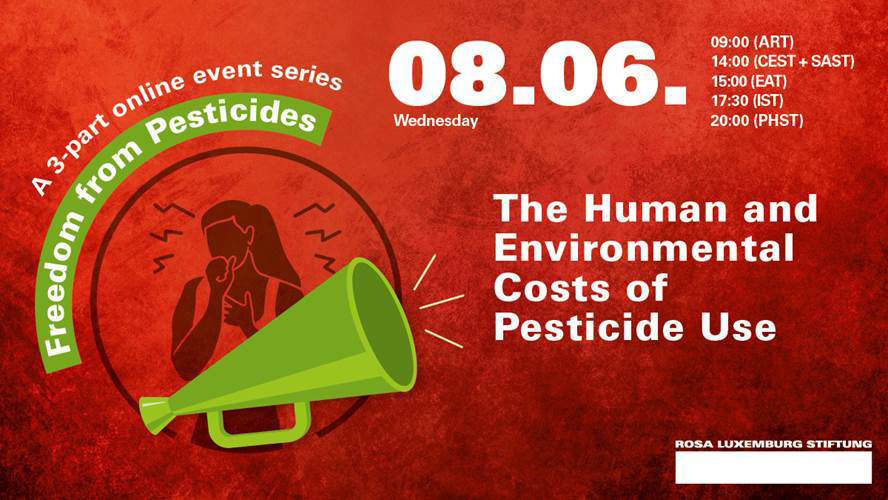
On Wednesday at 2pm, the Rosa Luxemburg Stiftung (Rosa Luxemburg Foundation) will host a webinar on “The Human and Environmental Costs of Pesticide Use”.
The event discussion will break down the effects of pesticides on human health and the natural environment by presenting experiences on the ground, particularly those of women.
“Pesticide giants maintain a particular and narrow scientific narrative on the impacts of pesticides, supported by a hefty marketing and PR budget,” according to the event description. “People on the ground, however, see and experience things differently.”
Speakers include Damian Verseñazzi of the faculty of medicine sciences at the National University of Rosario, Argentina; Colette Solomon of the Women on Farms Project in South Africa; and Nining Elitos of the Kongres Aliansi Serikat Buruh Indonesia. The discussion will be moderated by Ayi Kaario of the Rosa Luxemburg Stiftung, Southeast Asia.
Register here.

On Wednesday at 14.30pm, the West African Centre for Cell Biology of Infectious Pathogens at the University of Ghana will host a webinar on “Evolving trends in the sero- and genetic epidemiology of SARS-CoV-2 across three West African Countries”, presenting the results of a large, multicountry study.
Register here.
On Thursday, 9 June, at 1pm, the Institute for Poverty, Land and Agrarian Studies (Plaas) will host the launch of the book, Towards the Blue-Green City: Building Urban Water Resilience.
The book includes the reflections of a diverse set of scholars on the causes and consequences of Cape Town’s close call with “Day Zero”, and explores the lessons for cities around the world.
“Over the past several years, major cities such as Cape Town, São Paulo and Barcelona have faced ‘Day Zero’ scenarios, characterised by the very real possibility of running out of water,” say the organisers.
“As the world continues its urbanising trend, there are important lessons to be learnt from these water crises: why did they happen, what was the impact, and what was the response? These lessons will be central to tackling future urban-water-related risks and vulnerabilities, especially given the uncertainties created by increased climate change and variability.”
Speakers include Ernst Conradie from the religion and theology department at the University of the Western Cape; Philip Clayton of the Institute for Ecological Civilization in the US; Larry Swatuk of the School of Environment Enterprise and Development at the University of Waterloo, Canada; and Charon Büchner-Marais of Stellenbosch University’s Water Institute.
The launch will be chaired by Professor Mafaniso Hara from Plaas at the University of the Western Cape.
Download the book here. Register for the launch here.

On Thursday at 5.30pm, the Helen Suzman Foundation will host a roundtable discussion on the “Basic Income Grant (BIG) debate”. The discussion will unpack the BIG in greater detail.
Speakers include Kelle Howson of the Institute for Economic Justice; Alex van den Heever of the Wits School of Governance; Michael Sachs from the Southern Centre for Inequality Studies; Duma Gqubule from the Centre for Economic Development and Transformation; Basetsana Meletse of the #PaytheGrants movement; and Leigh Schaller of Fine Print News.
The event will take place at GIBS Business School in Johannesburg. To attend in person, RSVP to [email protected]. The event will be live-streamed on the Helen Suzman Foundation’s YouTube channel.
On Friday, 10 June, at 9am, the Applied Constitutional Study Laboratory at the Dullah Omar Institute, together with the Global Environmental Law Centre at the University of the Western Cape, will host a webinar on “Does Nature have a Constitutional Right to Exist – As Nature?”
During the webinar, Dr Erin O’Donnell and Dr Mohammad Sohidul Islam from Melbourne University will talk about their recent article on the Bangladesh Supreme Court’s 2019 decision to recognise rivers in that country as living entities that have rights, according to the event description. They will give the background to the case and explore the legal, constitutional and doctrinal grounds for the decision.
“With the rise and development of industrial modernity, nature generally lost any claim to sacral status, and became a resource to be dominated and exploited in the interests of one species: humankind. Species destruction, deforestation, ecological collapse and climate change are legacies of that exploitation,” reads the event description.
“Unless it is protected as a human right, in constitutions, nature has no rights of its own.”
Register for the webinar here.
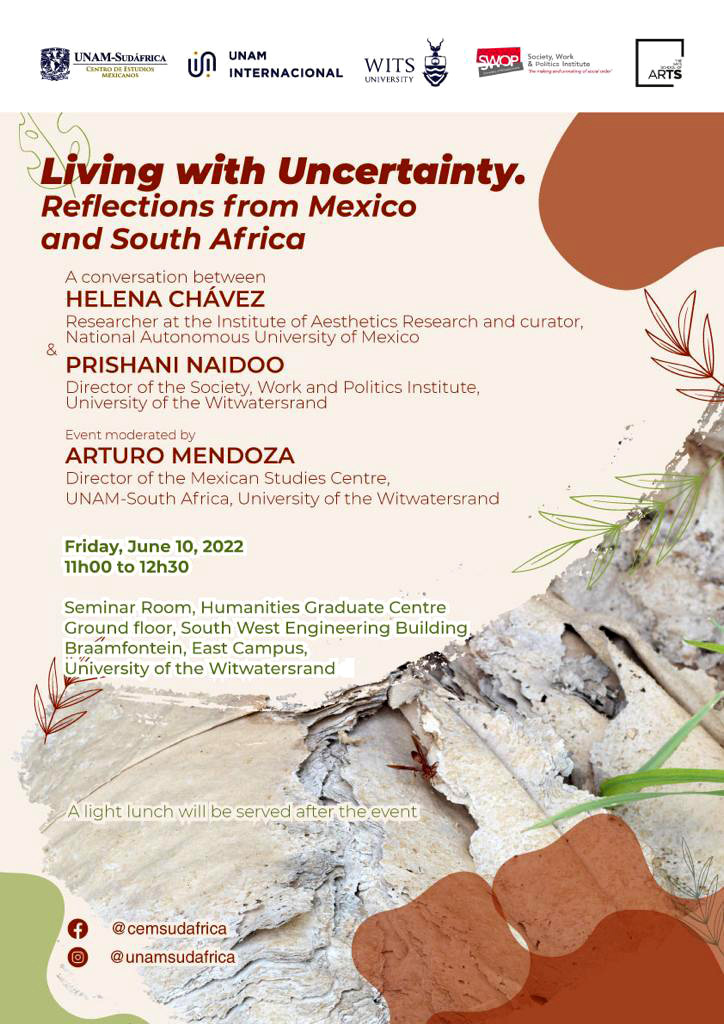
On Friday at 11am, Wits University, together with the National Autonomous University of Mexico, will host a discussion on “Living with uncertainty: Reflections from Mexico and South Africa” with Helena Chávez, a researcher with the Institute of Aesthetics Research at the National Autonomous University of Mexico, and Prishani Naidoo, director of the Society, Work and Politics Institute at Wits.
It will take place in the seminar room of Wits’ Humanities Grad Centre on the ground floor of the South West Engineering Building.
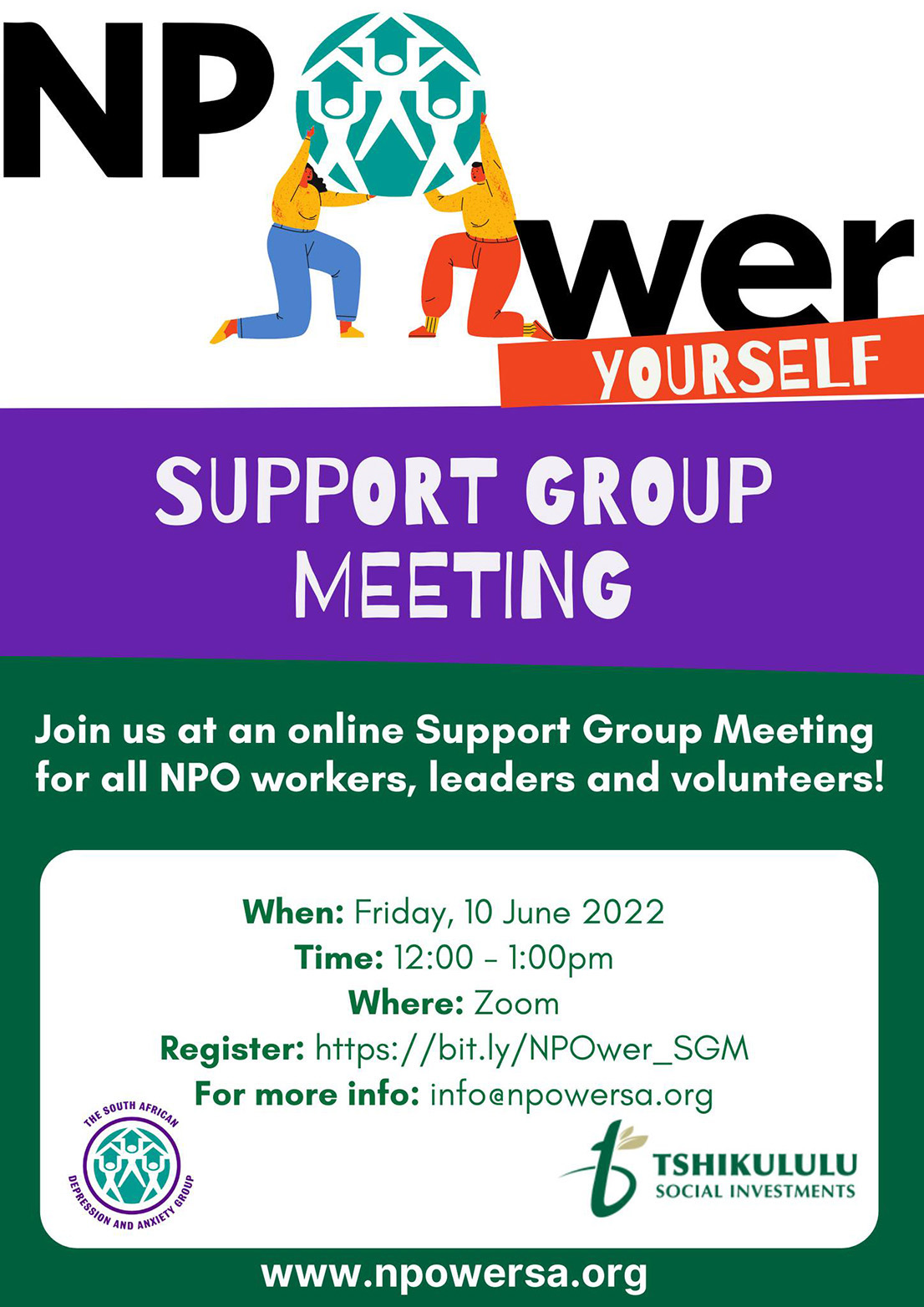
On Friday at 12pm, NPOwer will host a free online support group for non-government, non-profit and community organisations.
Register here.
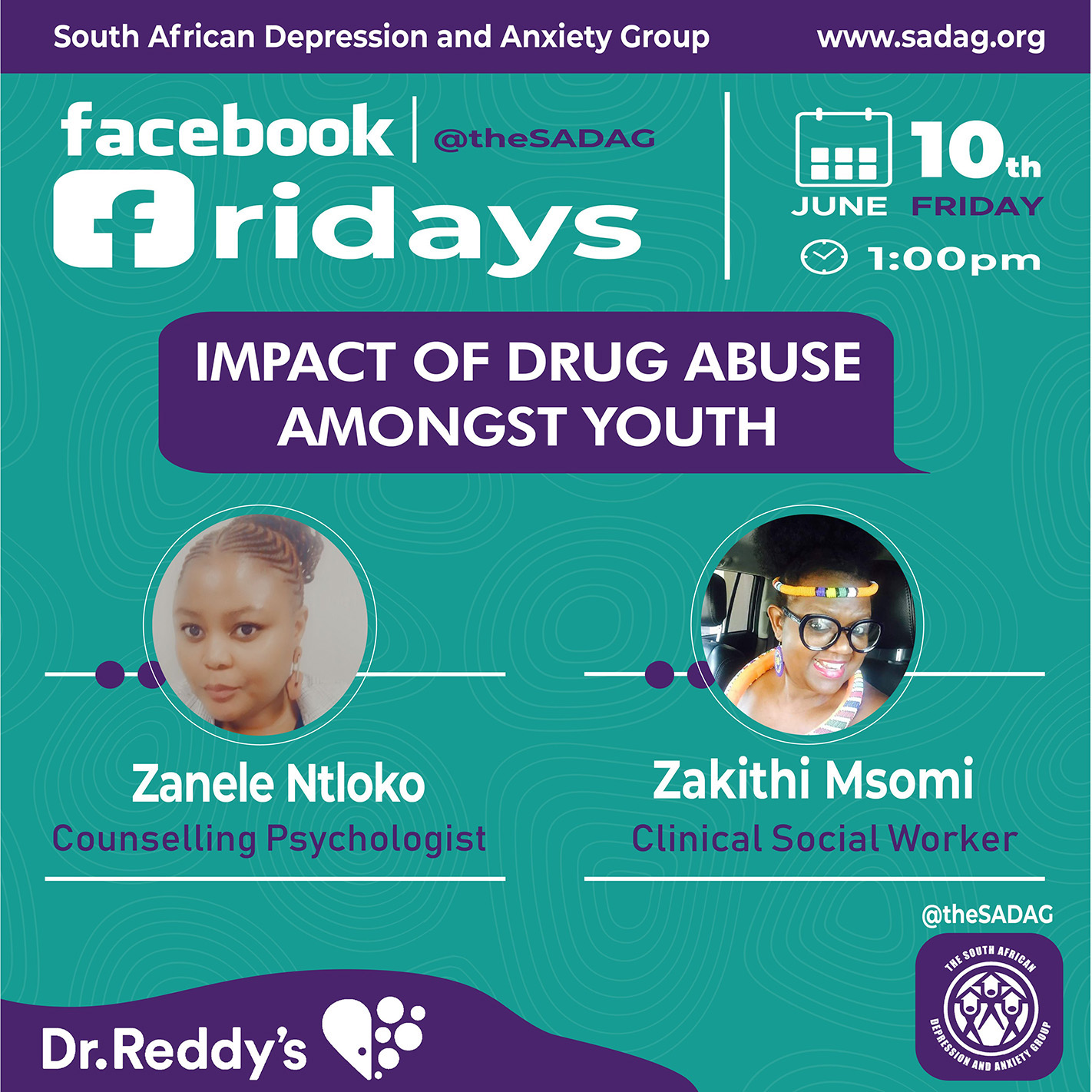
On Friday at 1pm, the South African Depression and Anxiety Group (Sadag) is hosting a #FacebookFriday conversation on the “Impact of Drug Abuse Among Youth”. Clinical psychologist Zanele Ntloko and clinical social worker Zakithi Msomi are the speakers.
The event will be live-streamed on Sadag’s Facebook page.
In honour of World Environment Day (Saturday, 5 June), WaterCAN is running a survey to better understand how South Africans feel about water in their municipalities. WaterCAN is an initiative run by the Organisation Undoing Tax Abuse.
The survey is titled “What am I drinking?” and can be accessed here. DM/MC


















 Become an Insider
Become an Insider
Comments - Please login in order to comment.